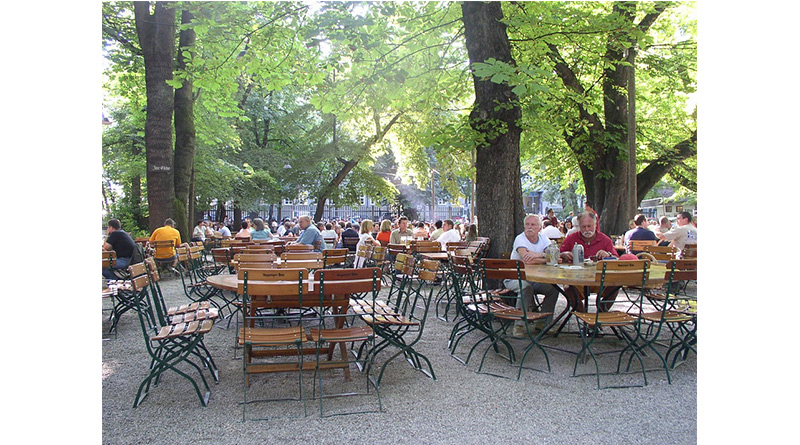Over 17,000 Extra Outdoor Seats On England’s Streets In Less Than A Year

More than 3,300 fast track applications have been lodged by businesses such as cafes, bars and restaurants to expand their footprint onto England’s streets, as companies across the UK continue to go the extra mile to protect jobs, maximise revenues and ultimately stay solvent.
PwC analysed 3,366 applications across 343 civic bodies covering England’s unitary authorities, metropolitan districts, London boroughs, county and district councils where the licences can be granted. Breakdowns of the 1,022 licences with available tables and chairs data placed at least* 17,045 extra customer seats outside.
Pavement licences are valid for between 3-12 months, and were introduced by the UK government on 22 July 2020. The intention was to help English businesses boost customer numbers outside and partially offset the impact of social distancing and indoor restrictions on revenues.
Of the 3,366 applications tracked to June 2021, 2,061 were approved, with 350 rejected, 490 pending and 11 withdrawn**. Hotspots include Westminster – which hosts more than 3,700 bars, restaurants and pubs – processing more than a third of total applications (1,310***), Kensington & Chelsea (442), Hackney (95), Islington (74) in London. Across the country, there was significant uptake in Northern cities including Liverpool (348) Newcastle (103) and Bradford (54).
The absolute number of extra seats is likely to be markedly higher given the 490 pending applications and chairs data only being available for a third of applications. Also, some councils only record live applications or have reduced access to licensing registers due to council offices being closed or operating with less staff during the pandemic.
The applications were made by a vast array of businesses, including coffee shops, hairdressers, hotels, pubs, bars and cafes, luxury retailers, co-working spaces, Michelin-starred restaurants and fast-food operators. Some businesses even took the opportunity to expand into space left unused by neighbours including theatre companies in temporary closure.****
Zelf Hussain, retail restructuring partner at PwC, said: “The take up of these pavement licences shows that for all forms of hospitality businesses, just how much effort they are making to keep going and how every penny counts, especially in times of financial stress.
“The last social distancing restrictions are lifting, but we’ve seen businesses encouraging customers to keep using their outdoor spaces. Some customers still feel more comfortable being outside, especially during the summer months, helping to allay any lingering concerns about meeting indoors. One seat, or cover, at a casual dining operator can generate around £6800 a year.***** Consequently the revenue generated for thousands of businesses by having an extra 17,045 seats operating for an average of 10 hours a day throughout the week at various points over the last year across England, can be vital to their survival.”
The measures, although temporary, reflect wider efforts by businesses to reposition themselves and keep revenues ticking over wherever possible. Pavement licences have been particularly popular due to the speed of processing. Applications can be approved in 10 working days in some cases. In comparison, a standard tables and chairs licence can take up to eight weeks for consultation and approval, and cost more than £1,200 for five tables or more.******
Claire Fox, operational restructuring partner at PwC, commented: “Six weeks’ less lead time means vital revenue is flowing through a lot faster as trading costs inevitably increase while businesses reopen fully. It also allows companies to capitalise on the summer months and increasing staycations before winter sets in. The potential increased ‘footfall’ is helpful as businesses try to balance operational costs – many are reporting higher overheads due to the increased staffing and hygiene measures required.
“Stock and materials still have to be bought in advance, staff still have to be paid, and liabilities including business rates and rent arrears will eventually have to be addressed. Companies already dealing with changing consumer habits and the potential impact of hybrid working patterns are increasingly finding themselves having to explore where costs deliver the greatest return, making key decisions on what can be taken out while trying to protect jobs.”
As the roadmap for reopening was unveiled, March, April and May 2021 recorded more than half (54%) of the total number of 3,366 applications. At least 678 were made during the period in London. In the regions, at least 1,164 requests were made for licences across the same period*******. Pavement licences were due to expire on 30 September 2021. However, the government has now confirmed an extension to these provisions for a further 12 months. Consequently the shift to increased ‘al fresco’ commerce is set to continue as businesses fully emerge from lockdown.
Toby Banfield, restructuring partner at PwC, commented: “We now enter a crucial period as government support tapers off and companies try to reopen fully in an economically viable way. For some, these licences provide vital additional revenue and give customers confidence they can enjoy eating out in a socially distanced way.
“However, not all businesses would have been able – or even wanted – to secure a licence. In fact, there are many who have not reopened even on a limited basis. Our previous research with the Local Data Company revealed that more than 5,500 outlets of chain businesses, including restaurants and pubs remained temporarily closed after the first lockdown. It was simply not economically viable to reopen given reduced footfall.”
